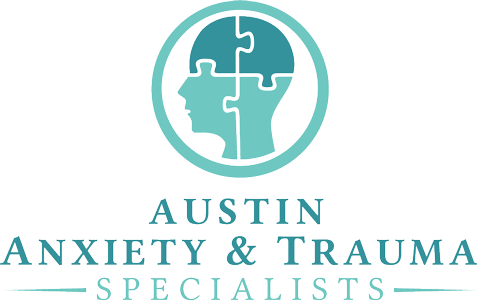or so many of us, the COVID-19 Pandemic was a difficult time. Work security felt scarce while the uncertainty of the future made it hard to find a moment’s peace in the isolation of our homes. Unable to simply reach out and see loved ones through some of our hardest moments, the pandemic carved an emotional toll on us all. Well over a few years since the start of it, the effects of the pandemic still can be felt on Texans’ mental health.
Mental health statistics in Texas
From the pandemic to present, there are some staggering statistics to be aware of:
- 43.4 of Texas adults experience symptoms of anxiety or depression. (NAMI, 2021)
- Nearly 50% of teens aged 12-19 in San Antonio experience mental health issues. (KSAT, 2022
- Reports of poor mental health increased by 25% from 2011 to 2021 in Travis County, Austin, Texas. (City of Austin, 2022)
- 80% of Texas counties are designated as Mental Health Professional Shortage areas. (Texas Tribune, 2023)
- 26.4% of Texans are unable to get mental health treatment or counseling. (NAMI, 2021)
- Texans are over 5x more likely to be forced out-of-network for mental health care than for primary care. (NAMI, 2021)
Over a four month period in 2020, the percentage of Texans that experienced anxiety and/or depression rose. An estimated 1.6 million more Texans experienced symptoms of anxiety and 1.8 million more Texans experienced depressive symptoms. While the pandemic may have ended, the struggle persists as people try to find their way back to their lives and jobs in an effort to recover the time lost. But for many, it’s not so simple.
With a looming recession and the job market hitting a crisis, more and more people report a decline in their mental health. In February 2021, about 43.4% of adults in Texas reported symptoms of anxiety or depression. Suicide rates and drug abuse have also gone up.
Recent estimates from the Meadows Mental Health Policy Institute project that for every 5-percentage point increase in unemployment in Texas during the COVID recession across a year, an additional 725 Texans could die each year from suicide (300) and drug overdose (425).
Mental health has become a hot topic on social media with trending hashtags highlighting awareness over shame. While many are beginning to feel encouraged to seek the support they need, 26.4% of Texans were unable to get counseling or treatment in 2021. Personal perceptions towards therapy may be involved, but there are also stark differences in access across the populations of Texas. Financial constraints, language barriers, and a shortage of mental healthcare professionals also make it hard to get the proper care needed—pointing many towards virtual counseling as an accessible, effective means of therapy.
Read more: In-Person vs. Online Therapy: Is Virtual Counseling Effective?
Anxiety statistics in Texas
Here are some notable statistics related to anxiety in Texas:
- 36.8% of Texans report symptoms of anxiety. (KFF, 2023)
- Among Texan adults who experience anxiety and/or depression, 30% need counseling or therapy but do not receive it, compared to the U.S. average of 28.2%. (KFF, 2022)
Anxiety is characterized by feelings of unease, worry, and apprehension often accompanied by physical symptoms such as increased heart rate and muscle tension. Many of us have experienced it at one time or another. However, when these feelings remain constant or appear at moments that seem without reason, they can deeply impact our wellbeing.
In the US, 6.8 million people experience generalized anxiety disorder (GAD), with women being twice as likely to be affected. In Texas, 36.8% of people reported symptoms of anxiety such as feeling worried, restless and/or irritable, rapid heart rates, and insomnia.
While anxiety is highly treatable, less than half of those struggling receive therapy or counseling. When anxiety goes untreated, it presents a risk for developing depression or substance abuse problems. It can also put a heavy strain on your body, leading to cardiovascular or gastrointestinal problems, and deteriorate meaningful relationships in your life.
Read more: 5 Breathing Techniques to Relieve Anxiety
Depression statistics in Texas
Recent statistics about the state of depression in Texas include:
- In Austin, Texas, suicide deaths among children and youth rose by 65 percent in five years. (City of Austin, 2023)
- 47% of students in Texas report feeling sad or hopeless (CDC, 2021)
- 20% of Texas students report seriously considering suicide (CDC, 2021)
Depression is a common mental health condition that affects 16 million adults a year. However, that doesn’t mean it should be glossed over. Depression can be detrimental to your well being and growth. It can rob you of precious moments, make preexisting health conditions worse, and even lead to suicide.
In 2021, 32.3% of Travis County residents reported experiencing 5 or more days of poor mental health. Over half of them were people aged between 18 and 29. Looking at an even younger group, 47% of students in Texas reported feeling sad or hopeless almost every day for over two weeks or more in a row. These trends reflect across studies, showing a rise in depression among adolescents across the US. Young people today are facing a wide scale series of crises from student loan debt, world disasters, high housing prices to economic uncertainty.
If depression isn’t addressed, it can have devastating results. 20% of students in Texas reported seriously considering suicide. With so many children and young people at such a high risk, it’s imperative that we start talking about it.
Feelings of deep sadness and hopelessness are not shameful, but part of our experience in this world. When we subdue these feelings and bury them deep, they can grow and deplete our wellbeing. If our youth can see that asking for help is not shameful, but normal, we can help protect their futures and ensure they do not cave under the harsh pressures they face.
Read more: How to Nurture Your Relationship While Supporting Your Partner’s Depression
It’s not too late
If you’ve been feeling overwhelmed, deeply sad or unmotivated, know that you are not alone. About 1 in every 20 adults experiences a mental health illness once a year in the US. In Texas, that means about 796,000 adults grapple with a mental health condition. While it’s not ideal that we live in a world where anxiety and depression are so prevalent, we have the opportunity to come together and address the impact these conditions have on our lives. It may be difficult to figure out where to start, but you deserve to be in control of your life again.
If you’re unsure about where to start, here are a few steps to get you on track to taking charge of your mental health:
- Take a mindful moment. Reflect on what you’re feeling and what you need.
- Write it down. Chronicle your emotions or thoughts in a journal.
- Speak up. Tell someone–a trusted family member or a friend-–about what you’re feeling.
- Get help. Find a local mental health provider that aligns with your needs.
- Track your symptoms. In preparation for your appointment, track what you’re feeling or experiencing in a journal up til the day of the session.
- Show up. Be present in your session. You may feel nervous, but remember, your therapist is there to support you, not judge you.
Read more: When to Seek a Diagnosis for Mental Health Conditions: A Checklist
Looking at all these numbers might feel a bit daunting or hopeless. Perhaps you’re wondering why we’ve reached such a state or if it’s always been this way. But the best thing you can do now is focus on what you can control. The good news is, anxiety and depression are highly treatable. If you or someone you care about is finding previously easy task (such as getting out of bed or doing laundry) difficult, or if it’s hard to recall when you last felt happy or at ease-–it might be time to seek help.
You don’t need to face the challenges ahead on your own. Schedule your first appointment with one of our therapists at Austin Anxiety and Trauma Specialists and we’ll match you to a mental health professional who can best support you in your journey to regain control of your life—and happiness.
It can get better. We can help.







